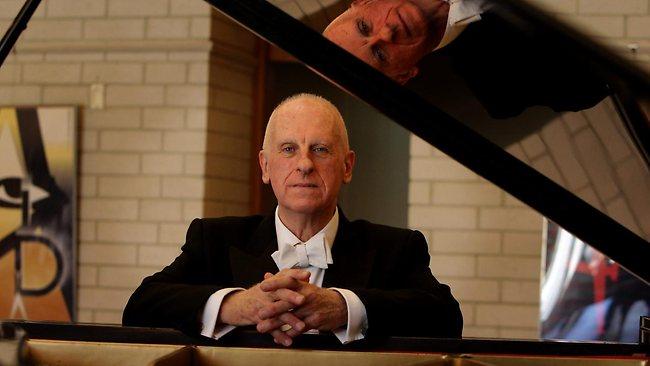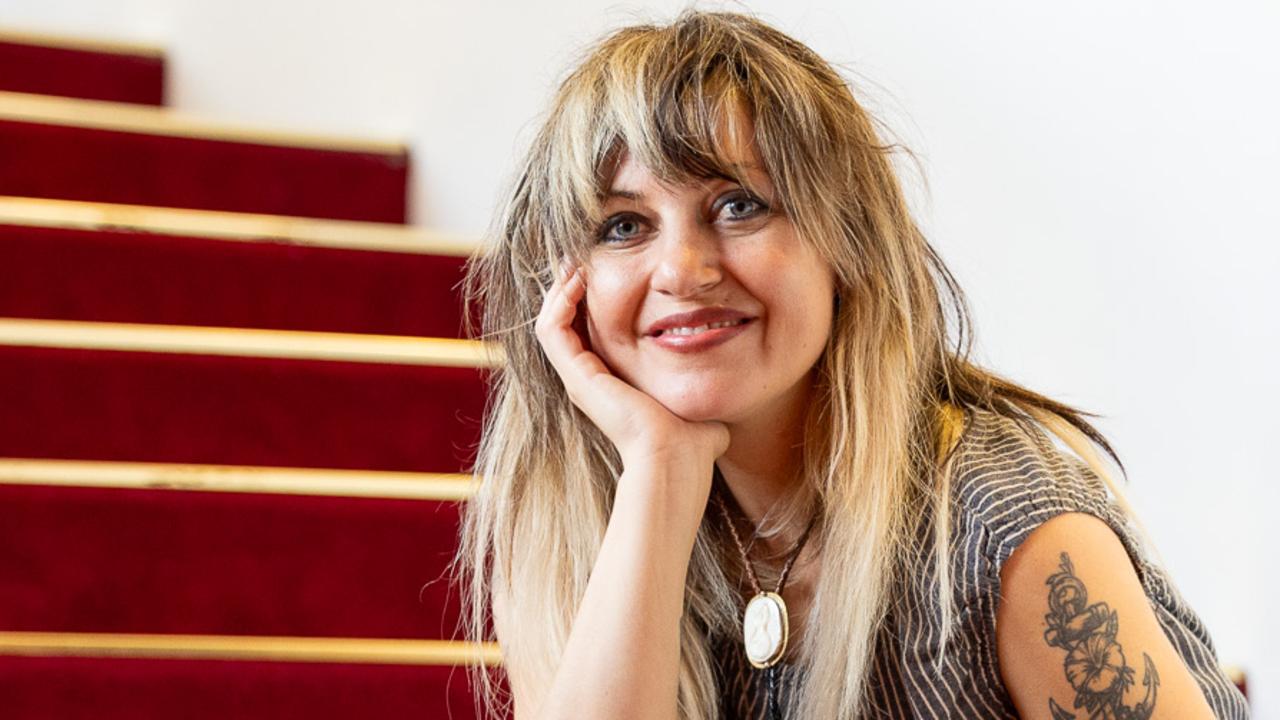Award recalls pianist's solidarity
ROGER Woodward has been honoured for his contribution to Polish culture.

FOR many Australians, the beginning of the end of the Cold War was captured by the unforgettable television images of the Polish Solidarity workers in the Gdansk riots.
At the finale, when the Russians finally left Warsaw, one of the most memorable images was news footage of an Australian pianist, Roger Woodward, playing Chopin for a cheering Solidarity leadership.
That was a great honour for an Australian artist, and last night Woodward's close involvement with Poland, its struggle and its people was recognised by the Polish government with its Medal for Merit to Culture, Gloria Artis, gold category -- the highest award for contribution to Polish culture, and one that is presented to either a foreign individual or an institution.
The medal was presented by the ambassador, his Excellency Andrzej Jaroszynski, at a special ceremony at the Polish embassy in Canberra.
"Recipients like Roger Woodward are outstanding artists, with links to Poland and promoting Polish culture abroad," Jaroszynski says. "Woodward is one of the few artists who have studied in Poland, speaks the language and was involved with what was going on in Poland, from the beginning.
"He gave concerts for workers and gave substantial assistance to Australian organisations that supported Solidarity . . . at some professional cost."
Jaroszynski also cites Woodward's contribution to the Polish pianistic tradition: "He made his debut with the Warsaw National Philharmonic, and actually he plays like a Pole" -- which is not surprising since Woodward studied under Zbigniew Drzewiecki, the great interpreter of Chopin.
It is not the first time Woodward, who performed around the world to raise funds for Solidarity, has been honoured by the Polish government.
But it is a special honour because Poland and its people mean a lot to him, personally and professionally. The award is a special recognition of his contribution to the combined cultural and political history of the country.
"Although Poland was occupied from the end of the 18th century until the end of World War I," Woodward says, "and then again from the end of World War II until 1989, it refused to ever be coerced into abandoning its wish to retain its separate national identity from that of its more powerful neighbours.
"I deeply admire the unfailing resolve of such courageous people who were so determined to pursue their own destiny in the face of such constant repression and hardship.
"Although I carried an Australian passport all my life, I also remain a citizen of the world . . . Poland [in] its hour of need, it was something we all needed to share rather than sit on the fence out of sheer expediency to protect one's career as many did throughout the 80s."
He says his long association with Poland has given him a unique perspective on the world.
"For foreigners such as myself who studied there during the height of the Cold War and the Soviet occupation, I learnt to appreciate the true value of trust, solidarity and freedoms that we take for granted, such as freedom of speech, of worship, of voting, other basic human rights and the need to respect them," he says. "We need to consider whether or not we in Australia would want others to help us if, for reasons that we cannot at present foresee, our country was suddenly compelled to face the kinds of problems that Poland had to. If it happened before, could it ever happen again?"
Despite last night's recognition, Woodward is modest about his Polish past.
"I was one of thousands who pulled his weight when it was risky but necessary to do so during the human rights struggles of the 70s and 80s for which the cost, professionally, was enormous because of those powerful Soviet tentacles that reached out . . . to so many influential places I imagined that I had known so well," he says.
"The human rights struggles of the 70s and 80s involved a considerable amount of personal as well as professional sacrifice for all who decided to take such a stand. Through the international language of music I tried to pull my weight as any Australian would when their mates were in trouble. One of the memorable moments from those times was sharing the complete works of Chopin in concerts with audiences around the world.
"I played to try to raise awareness as well as money for the trades union workers and for them to have the right for their voice to be heard at the International Labour Organisation in Geneva.
"What I did, however, was no more than many others in those times, simply showing compassion as part of human duty, one to the other. and for that, nobody should have to be awarded a medal."
Woodward, who is presently writing an autobiography, continues to play tirelessly all over the country.
He plays in Byron Bay next week and Port Macquarie the following week before heading to San Francisco, where he has been invited to chair a piano jury for a music competition.
Next year he will play recitals and chamber music concerts and give master classes in Switzerland and Germany. He will return to Australia later next year, hoping to take part in a Chopin concert under discussion for the Sydney Opera House.
The pianist appears taken aback by the recognition bestowed on him by the Polish government. "I feel a little like the artist who walks into a hall to thunderous applause without having played a note," he says.



